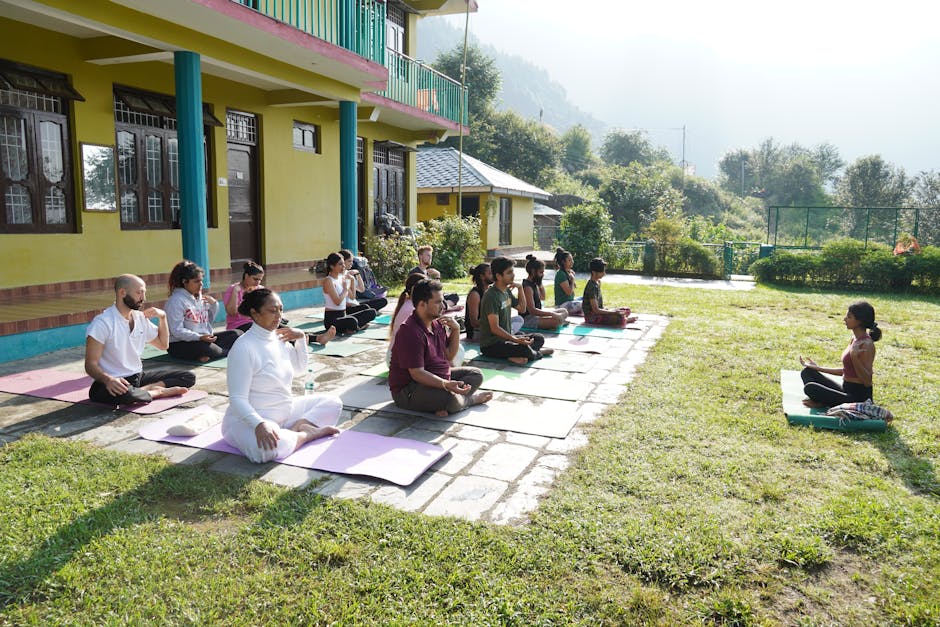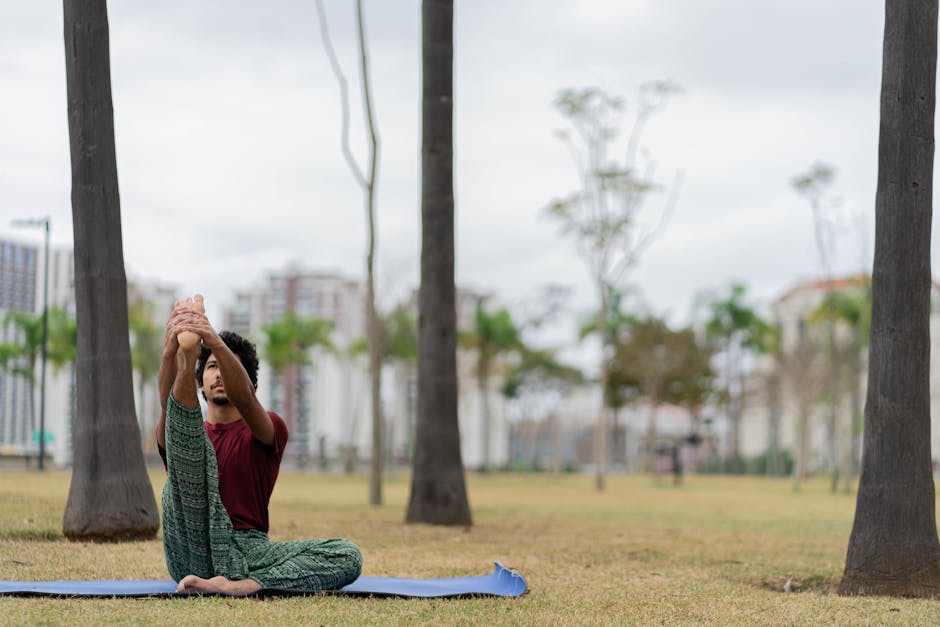When the chaos of life feels overwhelming, finding a moment of peace can be as transformative as a cool breeze on a sweltering day. For those on the journey of recovery, especially within the framework of Alcoholics Anonymous (AA), daily reflections and meditation can be the gentle wind of change that soothes the soul. If you’ve ever wondered how to navigate the rough waters of life with a bit more grace and a lot less stress, you’re in the right place.
Key Takeaways
- Daily reflections in AA offer a warm and structured path to nurture your personal growth and embrace honesty in your journey.
- Meditation offers numerous benefits, including stress reduction and improved mental clarity, which are crucial for individuals in recovery.
- Recovery prayers and the Serenity Prayer offer spiritual support and help maintain sobriety.
- Stoicism and its principles can enhance the recovery process by teaching resilience and acceptance.
- Practical Stoic techniques can be applied to everyday life to manage emotions and deal with adversity.
- Living decently in an indecent society is a challenge that can be met with Stoic advice and behavior.
- Exploring Stoic literature can provide guidance and wisdom relevant to recovery.
Introduction to AA Daily Reflections
Understanding AA Daily Reflections
Purpose of daily reflections in recovery
Daily reflections are a cornerstone of the AA program, providing a structured way for individuals to contemplate their journey, acknowledge their struggles, and celebrate their successes. These moments of introspection are not just about self-examination; they’re about setting the tone for the day ahead, aligning actions with values, and staying on the path of sobriety.
The role of honesty in personal growth
Honesty is the bedrock upon which recovery is built. It’s about being truthful with oneself, which can sometimes be the hardest person to face. Embracing honesty means recognizing both the good and the bad within us, and it’s a critical step towards genuine healing and growth.
The Significance of March 14: Honesty Reflection
Exploring the theme of honesty in AA reflections
March 14th holds a special place in the AA daily reflections calendar, emphasizing the importance of honesty in sobriety. It’s a day to reflect on how honesty affects our lives and the lives of those around us, and to renew our commitment to this essential virtue.
Applying honesty in daily life
Incorporating honesty into our daily lives means more than just telling the truth. It’s about living authentically, making decisions that reflect our true selves, and being open to the lessons that life teaches us.

The Practice of Meditation in Recovery
Benefits of Meditation for Individuals in Recovery
Stress reduction
Meditation is a powerful tool for stress reduction, which is particularly beneficial for those in recovery. It helps calm the mind, reduce anxiety, and provide a sense of peace that can be elusive in the hustle and bustle of daily life. For more insights on achieving emotional balance, consider exploring how to transform your life through meditation.
Improved mental clarity
Regular meditation practice can lead to improved mental clarity and focus. It allows individuals to observe their thoughts without judgment, which can be incredibly freeing, especially when dealing with cravings or triggers.
Integrating Meditation into Daily Routine
Setting aside time for meditation
Creating a meditation routine doesn’t have to be daunting. It can be as simple as setting aside a few minutes each day to sit quietly and focus on your breath. This small commitment can make a significant difference in your overall well-being.
Creating a conducive environment
To get the most out of your meditation practice, it’s helpful to create a space that is calm and free from distractions. This might mean a quiet corner of your home or a spot in nature where you can sit undisturbed. For those looking to deepen their practice, finding the perfect meditation diary from our shop can be a helpful step.

Recovery Prayers and Their Impact
The Power of Recovery Prayer in AA
Spiritual support in recovery
Prayer can be a source of immense spiritual support for those in recovery. It provides a moment to connect with a higher power, however one understands it, and to seek guidance and strength on the journey ahead.
The role of prayer in maintaining sobriety
Prayer can serve as a daily reminder of one’s commitment to sobriety. It’s a practice that can bring comfort during difficult times and reinforce the resolve to stay on the path of recovery.
March 14 Recovery Prayer
The message of the prayer
The recovery prayer for March 14th focuses on the theme of honesty, asking for the courage to face the truth and the strength to carry that truth into our daily actions.
How to use the prayer in daily reflections
Incorporating the March 14th recovery prayer into your daily reflections can be a powerful way to start your day with intention and focus. It’s a reminder of the value of honesty and the role it plays in a sober life.

Stoicism and The Serenity Prayer
Stoicism as an Enhancement of The Serenity Prayer
Similarities between Stoicism and The Serenity Prayer
The Serenity Prayer, often recited in AA meetings, shares many similarities with Stoic philosophy. Both emphasize the importance of distinguishing between what we can control and what we cannot, and finding peace in that understanding.
Stoicism as a philosophy for resilience
Stoicism teaches resilience and the ability to endure life’s challenges without being overwhelmed by them. It complements the Serenity Prayer’s message of seeking serenity, courage, and wisdom in the face of adversity.
Stoic Principles in the Context of Recovery
The concept of control in Stoicism and recovery
In both Stoicism and recovery, there’s a strong focus on recognizing what is within our control. This can be empowering, as it directs our energy towards actionable change rather than futile worry.
Embracing acceptance and courage
Stoicism encourages acceptance of life’s events, paired with the courage to change what we can. This aligns closely with the journey of recovery, where acceptance and courage are vital to overcoming addiction.

Practical Stoic Techniques for Everyday Life
Simple Stoic Techniques to Foster Serenity
Techniques for managing emotions
Stoicism offers practical techniques for managing emotions, such as reframing negative thoughts and focusing on the present moment. These strategies can be particularly helpful when dealing with the emotional ups and downs of recovery.
Strategies for dealing with adversity
Stoicism teaches that adversity can be an opportunity for growth. By adopting a Stoic mindset, individuals in recovery can learn to view challenges as chances to strengthen their sobriety and personal resolve.
The 7 Habits of Highly Stoic People
Description of the 7 habits
The 7 habits of highly Stoic people include practices like living in agreement with nature, focusing on what’s in our control, and taking action in accordance with virtue. These habits can be a blueprint for living a balanced and meaningful life.
How to cultivate these habits in daily life
Cultivating these Stoic habits requires practice and mindfulness. It’s about making small, consistent changes in how we think and act, and being patient with ourselves as we grow.

Living Decently in an Indecent Society
The Challenge of Maintaining Decency
Defining decency in the context of recovery
In recovery, decency can mean living with integrity, treating others with respect, and upholding the values that are important to us, even when society may seem to be pushing in the opposite direction.
Overcoming societal pressures
Overcoming societal pressures to engage in harmful behaviors can be tough. However, by leaning on the support of the recovery community and staying true to our principles, we can maintain our decency and sobriety.
Stoic Advice for Decent Living
Stoic teachings on behavior and ethics
Stoic philosophy offers valuable teachings on behavior and ethics that can guide us in living decently. It encourages us to act with virtue and to consider the impact of our actions on ourselves and others.
Practical tips for living stoically
Living stoically doesn’t mean suppressing emotions or enduring hardship without complaint. Instead, it’s about approaching life with a calm demeanor, making reasoned decisions, and accepting what we cannot change.
Exploring Stoic Literature for Guidance
The Best Versions of “The Meditations” to Read First
Recommendations for beginners
For those new to Stoicism, starting with accessible versions of “The Meditations” by Marcus Aurelius can be incredibly enlightening. These texts offer timeless wisdom that can be applied to the challenges of recovery.
Insights from “The Meditations” relevant to recovery
“The Meditations” provide insights into dealing with pain, loss, and the trials of life. These lessons are particularly relevant for those in recovery, as they echo the principles of resilience and acceptance.
Applying Stoic Wisdom from Literature
Extracting lessons from Stoic texts
Stoic literature is rich with lessons that can be extracted and applied to our daily lives. By studying these texts, we can gain a deeper understanding of how to live with virtue and purpose.
Incorporating Stoic teachings into daily life
Incorporating Stoic teachings into daily life involves reflection, practice, and a willingness to adapt. These teachings can become a compass that guides us through the complexities of recovery and beyond.

Conclusion
Summarizing the Guide to Serenity
The importance of daily reflections, meditation, and prayer
Daily reflections, meditation, and prayer are essential practices for anyone seeking serenity, especially those in recovery. They provide structure, support, and a path to inner peace.
The value of Stoic philosophy in recovery
Stoic philosophy offers a valuable framework for understanding and navigating the world. Its principles can greatly enhance the recovery process by fostering resilience, acceptance, and courage.
Encouragement for Continued Practice
Motivation to maintain the habits discussed
Maintaining the habits discussed in this guide requires commitment and perseverance. But the rewards—serenity, clarity, and a deeper sense of purpose—are well worth the effort.
The ongoing journey towards serenity and recovery
The journey towards serenity and recovery is ongoing. It’s a path that unfolds each day, with each reflection, meditation, and prayer. And with the wisdom of Stoicism to light the way, that path can lead to a life of balance, virtue, and peace.
Embrace the Journey: Your FAQ Guide to AA Daily Reflections and Meditation
What are AA daily reflections?
AA daily reflections are short insights and focused thoughts that provide members of Alcoholics Anonymous (AA) with daily guidance and inspiration. They are often based on the principles of the 12-Step program and are meant to encourage self-examination, spiritual growth, and sober living. These reflections are typically read at the beginning of the day to set a positive tone and intention for the hours ahead.
How can meditation benefit someone in AA?
Meditation can be a powerful tool for individuals in AA as it helps reduce stress, enhance self-awareness, and promote emotional health. It can also aid in managing cravings and triggers by fostering a sense of inner peace and stability. Regular meditation practice can improve mindfulness, allowing individuals to stay present and focused on their recovery journey.
Are there specific meditations for AA members?
Yes, there are meditations specifically designed for AA members which often incorporate the principles of the 12-Step program. These meditations might focus on themes such as acceptance, surrender, forgiveness, and gratitude. They are tailored to support the unique challenges and experiences of those in recovery from alcoholism.
How do I start with AA daily reflections and meditation?
To start with AA daily reflections and meditation, you can begin by setting aside a few minutes each morning to read a daily reflection from AA literature or online resources. Follow this by a short period of meditation, starting with just a few minutes and gradually increasing the time as you become more comfortable with the practice. There are also guided meditations available that are specifically designed for individuals in recovery.
Can non-AA members benefit from AA daily reflections and meditation?
Absolutely, non-AA members can also find value in AA daily reflections and meditation. The insights and themes often touch on universal aspects of the human experience, such as resilience, personal growth, and the importance of community. While these practices are rooted in the context of recovery, they can be beneficial to anyone seeking spiritual enrichment and emotional well-being.
Is there a recommended time of day for AA reflections and meditation?
While many people prefer to engage in AA reflections and meditation in the morning to set the tone for their day, there is no strict rule about timing. The best time is one that fits into your schedule consistently. Some may find it helpful to reflect and meditate in the evening as a way to unwind and process the day’s events. The key is regularity and making it a part of your daily routine.
What if I struggle with sitting still for meditation?
Struggling with sitting still during meditation is common, especially for beginners. It’s important to remember that meditation is a skill that improves with practice. Start with short periods of meditation and don’t be too hard on yourself if your mind wanders. You can also try different forms of meditation, such as walking meditation or mindfulness exercises, which may be more engaging if you find it difficult to sit still.
How can I incorporate AA daily reflections into my busy schedule?
Incorporating AA daily reflections into a busy schedule can be done by setting a specific time each day for this practice, such as during your morning routine or right before bed. You can also carry a book of daily reflections with you or use a smartphone app so that you can read them during short breaks throughout the day. The key is to make it a priority and a non-negotiable part of your daily life.
Can daily reflections and meditation help prevent relapse?
Daily reflections and meditation can be effective tools in relapse prevention. They help maintain a focus on recovery, provide regular reminders of the principles of sobriety, and support a mindful approach to life’s challenges. By promoting self-awareness and emotional regulation, these practices can empower individuals to make healthier choices and respond to stress in more constructive ways.
Where can I find resources for AA daily reflections and meditation?
Resources for AA daily reflections and meditation can be found in AA literature, such as ‘Daily Reflections: A Book of Reflections by A.A. Members for A.A. Members.’ Additionally, there are online platforms, mobile apps, and local AA meetings where you can access these materials. Many AA groups also share resources and can provide recommendations for meditation guides and reflection materials.



